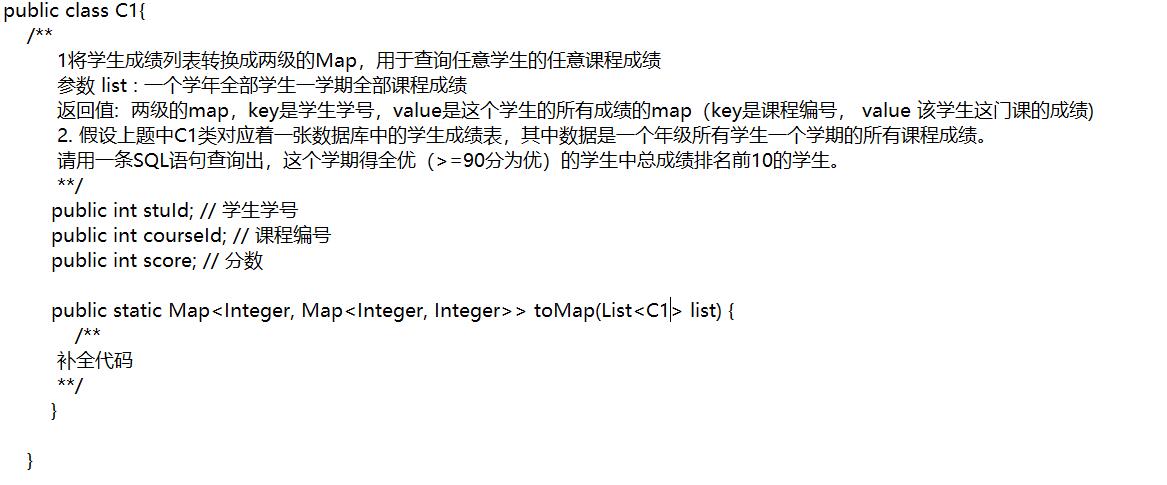想问一下这两个题怎么写呢?

public static Map<Integer, Map<Integer, Integer>> toMap(List<C1> list) {
Map<Integer, Map<Integer, Integer>> stuMap = new HashMap<Integer, Map<Integer, Integer>>();
for(C1 c1: list) {
Map<Integer, Integer> scoreMap = new HashMap<Integer, Integer>();
scoreMap.put(c1.courseId, c1.score);
stuMap.put(c1.stuId, scoreMap);
}
return stuMap;
}
SQL:
select top 10 c1.* from c1 where score >= 90 order by score desc;
点个采纳
Map<Integer, Map<Integer, Integer>> stuMap = new HashMap<Integer, Map<Integer, Integer>>();// 需要返回的对象
HashMap<Integer, Integer> temp = new HashMap<Integer, Integer>(); // 课程和成绩
list.forEach(c1 -> { // 获取所有的学员,类似分组
temp.put(c1.stuid, c1.stuid);
});
temp.forEach((key, value) -> {
HashMap<Integer, Integer> courseMap = new HashMap<Integer, Integer>(); // 课程和成绩
list.forEach(c1 -> {
System.out.println("学生编号:" + c1.stuid + "| 学生课程编号:" + c1.courseid + " | 学生成绩:" + c1.score);
if (key == c1.stuid) {
courseMap.put(c1.score, c1.courseid);
}
});
stuMap.put(key, courseMap);
});
return stuMap;
测试代码
C1 c1 = new C1();
c1.courseid = 90;
c1.score = 01;
c1.stuid = 1111;
C1 c2 = new C1();
c2.courseid = 95;
c2.score = 02;
c2.stuid = 1111;
C1 c3 = new C1();
c3.courseid = 91;
c3.score = 02;
c3.stuid = 1112;
List<C1> list = new ArrayList<>();
list.add(c1);
list.add(c2);
list.add(c3);
System.out.println(toMap(list));
运行结果,一个学生多个课程成绩
{1111={1=90, 2=95}, 1112={2=91}}
先实现功能,还可以考虑更优方案。